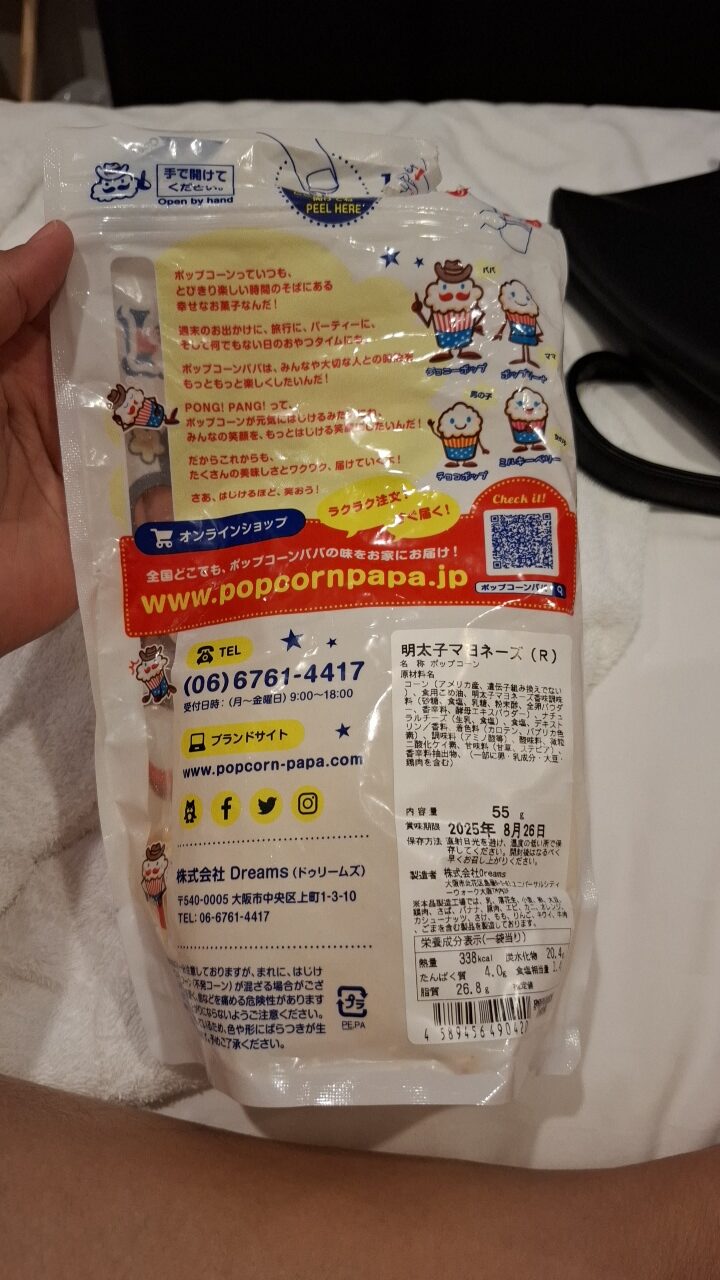
Barcode: 4908011703216
明太子マヨネーズ (r)
HALAL
📝 Reason: Several ingredients are generic or unspecified (seasoning, flavoring, sweetener, powder, coloring). Such ingredients may contain animal derivatives, alcohol, or haram E-numbers (e.g., E120, E124). Islamic scholars and halal certifying bodies (Quran 5:3; IFANCA, HMC) recommend avoiding products with unclear or doubtful sources until their origin is verified. IFANCA and HMC emphasize Halal certification for ambiguous items, especially when ingredients could involve haram processing or cross-contamination. See further at www.halalhmc.org and www.ifanca.org.
🏷️ Category: Popcorn
📄 Certificates: 55 G, 賞味期限 2025年8月26日, Vegetarisch
Ingredients:
Details
Understanding the Halal Status of 明太子マヨネーズ
When it comes to food products, especially for those following Islamic dietary laws, understanding Halal status is crucial. This article dives deep into the Halal status of 明太子マヨネーズ (Mentaiko Mayonnaise) and examines its ingredients, including various E-numbers that may be included.
Halal Certification and General Guidelines
The term ‘Halal’ refers to what is permissible or lawful in traditional Islamic law. According to Islamic scholars and organizations such as the Halal Monitoring Committee (HMC) and the Islamic Food and Nutrition Council of America (IFANCA), products must be scrutinized for their ingredients and certification. Generic ingredients can often bear the risk of hidden non-Halal elements, especially when unspecified. Thus, any ambiguous ingredients should be treated with caution.
Ingredients Breakdown
Here’s a look at the ingredients of 明太子マヨネーズ:
- Corn: Naturally plant-based and Halal. [Source]
- Seasoning: This is a generic term that can potentially include animal-derived or alcohol-based flavorings, raising some concerns. [Source]
- Sugar: A plant-based ingredient with no animal or doubtful sources. [Source]
- Salt: A mineral that is always considered Halal. [Source]
- Lactose: Derived from dairy, but the enzymes used in its production may pose a Halal concern. [Source]
- Powder: A vague term which could comprise different origins, hence uncertain regarding Halal status. [Source]
- Spice: Generally derived from plants, though certain blends can utilize non-Halal components.[Source]
- Yeast Extract Powder: Generally Halal unless mixed with haram ingredients. [Source]
- Vinegar: Typically Halal; fermentation yields acetic acid, which does not produce alcohol.[Source]
- Whole Egg Powder: Its Halal status is questionable without proper certification due to unknown sources and processing methods. [Source]
- Natural Cheese: The Halal rating depends on the source of rennet used for cheese-making. [Source]
- Flavoring: Often unspecified; requires caution as it could be derived from animal sources or contain alcohol. [Source]
- Dextrin: Usually derived from corn or potato, it’s Halal unless sourced unethically from wheat with alcohol. [Source]
- Coloring: Unspecified coloring could contain non-Halal E-codes like E120 or E124, a component that should be checked closely. [Source]
- Sweetener: Often unspecified and not clearly defined which makes it tricky to determine its Halal status. [Source]
- Spice Extract: Generally plant-based unless a solvent containing alcohol is involved; needs verification on appropriateness. [Source]
Conclusion
明太子マヨネーズ is labeled as Halal, however, it is important to note that some ingredients remain ambiguous in their sources. Ingredients like seasoning, whole egg powder, natural cheese, flavorings, and certain E-numbers pose potential doubts and should ideally be verified through credible certification.
To ensure that your food choices align with your faith and dietary requirements, refer to authoritative sources like the HMC and IFANCA for thorough guidance. As the food landscape evolves, being well-informed about ingredient origins, processing methods, and certification plays a pivotal role in making Halal dietary decisions.
